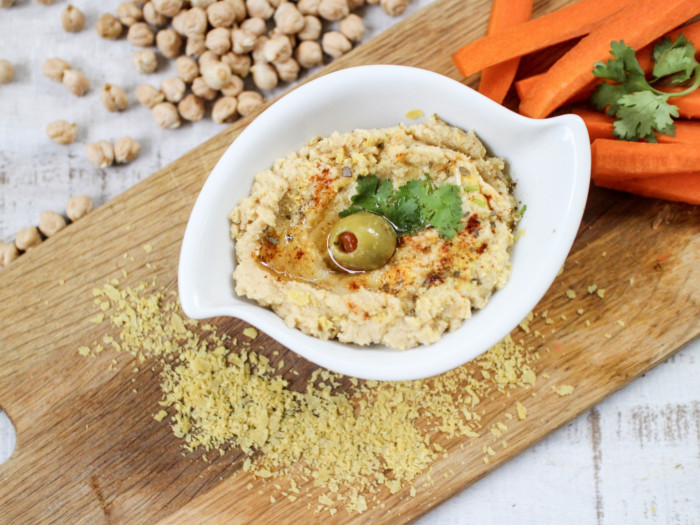Adding nutritional yeast to your regular diet is an easy way to boost the nutritional value of many different dishes.
What is Nutritional Yeast
Nutritional yeast is a form of deactivated yeast that is commonly used as a food additive or flavoring element, particularly for vegans and vegetarians. It is a type of fungus, and a typical strain for this culinary ingredient is Saccharomyces cerevisiae, but it only becomes deactivated when the fungal cells have died.
What does nutritional yeast taste like?
This product is available in flakes, or as a fine yellow powder, and is popularly used in imitation cheese varieties. The savory, nutty, and earthy flavor of this deactivated yeast is quite similar to certain cheeses, which is why so many vegan and vegetarian recipes call for its inclusion.

Nutritional yeast Photo Credit: Shutterstock
Nutritional Yeast Nutrition
The most important nutrients provided by nutritional yeast are vitamin B1 and B2, which are often found in animal products, such as cheese and meat. Therefore, this form of yeast serves as an important replacement for those whose dietary choices exclude dairy products or animal products of any kind.
The production of this yeast is very simple, as large amounts of this fungal strain can be grown very quickly. When it is exposed to heat, the fungus deactivates, and can then be dried, processed, packaged and sold. To increase the level of vitamin B12 in the body, another critical B vitamin, many varieties of nutritional yeast are artificially fortified with this vitamin. Selenium, zinc, iron, magnesium and phosphorous are also found in moderate quantities. [1]
The other nutritional benefit of this yeast is its significant level of protein. As little as two tablespoons of nutritional yeast provide 4 grams of protein, and as a complete protein, this yeast delivers amino acids the body cannot naturally produce.
How to use nutritional yeast?
Again, for vegetarians and vegans seeking non-animal sources of protein, this topping and ingredient are very versatile.
- It can be sprinkled over popcorn to mimic the flavor of cheese.
- It is also popularly mixed into eggs, tofu, potatoes, and other basic foods to improve the flavor and nutritive value.
- It also functions as an alternative in some cream- and cheese-based sauces.
Nutritional Yeast Dangers
Despite the many potential benefits of nutritional yeast, there are some areas of concern that should be considered before using this additive, depending on your present health condition.
- Similarly, some people report more intense gas or bloating after using this yeast, although that may be due to the activity of the fiber as it stimulates the digestive process.
- Very few cases of allergic reactions have been reported, though the possibility does exist.
- Finally, certain autoimmune diseases may be adversely affected by the regular consumption of this yeast.
Be sure to speak with your doctor before adding this powerful ingredient to your daily diet.
